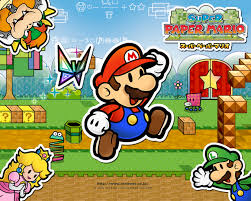Culture of power can be seen as a form of accepted discrimination within society. Its influences can be seen wherever we go. For example, white males are the dominate figure in management in most corporations and businesses, but rarely will you see women in high positions, typically being left to be a secretary. Women will be left to help the manager, not be the manager, and if we’re ever in that position, it becomes difficult for the males in the business to cooperate. It’s a sexist issue, because it’s not the norm. I can speak of this first hand, when I was 19 years old I was promoted at my job of the time to supervisor, not only was I Hispanic working in a predominately white environment, I was also one of the youngest supervisors in the company. When it came down to it, the older groups and the males I worked with it made it difficult for me and would rarely listen. They thought that I would back down, but that’s never in my nature, when I took charge and disciplined several people, then they listened. Some would also listen to the other supervisor more than me, simply because it was man.
This culture of power is seen in the simplest places, even in forms of entertainment, and yes I’m talking about video games. A lot of games will portray women and children as less equal to the male, regardless of race. Yes, the white male will always over power every other individual in the game, however. Let’s take Super Paper Mario for an example. In the game the “in group” would be Count Bleck and his followers, which are trying to take over all the dimensions and in the process take possession of Princess Peach, and eliminate Mario, Luigi and all of Flipside -- the culture marginalized. Here the culture of power goes further than just a belittlement; it goes to the extreme of destruction. While Mario, Luigi, Princess Peach, and a fourth hero battle against Count Bleck and his followers, to try to save the dimensions of Flipside and diminish the problems that come along with culture of power.
You can also think of the heroes as another “in group.” Where Mario is the leading character and has all the benefits compared to the others. As of chapter three, Mario is the only character that can flip between dimensions and can find secret passages that Princess Peach cannot. The only special “trick” Princess Peach can do is float in the air, when Mario doesn’t have the ability to do so. Is this sexism within the creators of the Super Mario saga or is it culture of power taking a strong stand against the good in society, or is it the portrayal that in the end we know that good deeds conquer all.


Good points. I have to say, as I mentioned on my Culture of Power post, that most video games are manufactured by white males, therefore it is no surprise that the main characters and the "heroes" of the story are indeed caucasian, and women tend to play the role of the sidekick, or damsel in distress.
ReplyDeleteJorge Tavarez